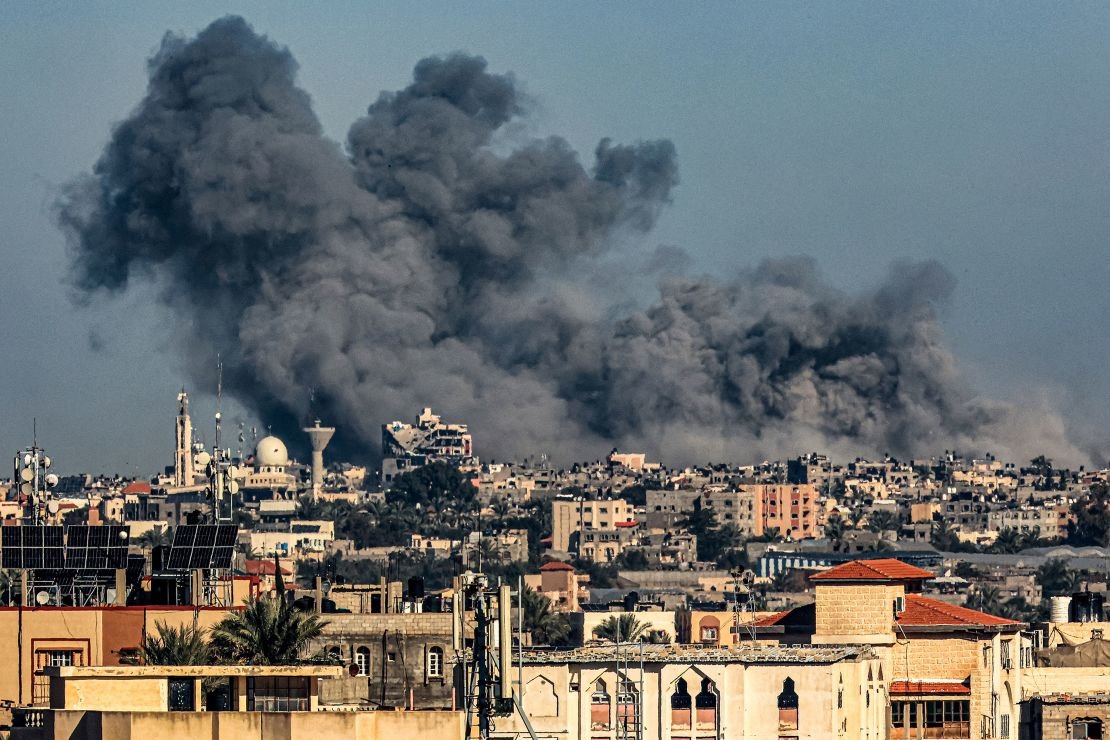The ongoing humanitarian crisis in Gaza at the hands of Israel Defence Forces (IDF) has proved to be a litmus test for the leadership of Israeli Prime Minister Benjamin Netanyahu. The accidental killing of three Israeli hostages by their own military not only underscores the complexities of the situation but also raises profound questions about Netanyahu’s ability to navigate the complex geopolitical landscape of crisis.
At the center of it all is Israeli PM Netanyahu’s unwavering opposition to international efforts for an interim government overseen by the Palestinian Authority and a two-state solution. This stance has not only strained Israel’s relations with key allies, including the United States, Britain, and Germany, but it has also isolated the nation on the global stage. Despite increasing diplomatic pressure, Netanyahu remains resolute, emphasizing his historical role in preventing the establishment of a Palestinian state.
The issue involving the Israeli hostages has dealt a severe blow to Netanyahu’s narrative of strength and stability. In an attempt to reshape the narrative, he reiterated his opposition to a Palestinian state, asserting that his foresight prevented potential chaos. However, skepticism abounds, particularly as respected Israeli commentators label the deaths as a clear “war crime” under international law. The incident has exposed the harsh consequences of Netanyahu’s uncompromising approach, leading to growing public discontent and calls for accountability.
Complicating matters is Netanyahu’s delayed expression of regret for the incident and his perceived prioritization of political maneuvering amid the ongoing conflict.
Even figures within his government, including the Israeli Army Chief of Staff and the Defense Minister, have faced challenges in managing the fallout from this grave mistake, further diminishing confidence in the Prime Minister’s leadership. The internal strife and lack of immediate accountability contribute to the perception of a leadership crisis, both domestically and on the global stage.
Internationally, Israel faces significant criticism for its military campaign. President Biden’s expressed concern over “indiscriminate bombing” in Gaza signals a shift in the traditionally unwavering US support for Israel. Similarly, the Foreign Ministers of Britain and Germany, once staunch supporters, have altered their tone, calling for a “sustainable” ceasefire and urging Israel to exercise precision in distinguishing between combatants and civilians. This international censure adds pressure on Netanyahu, emphasizing the global ramifications of his military strategy.
Back in Israel, Bibi’s alignment with far-right coalition partners and his rejection of a two-state solution are increasingly unpopular among the Israeli populace. As the attack on Palestinian civilians persists without a clear resolution, the families of hostages’ advocate for a ceasefire to facilitate negotiations for their release. The public, witnessing the tragic consequences in Gaza and unmatchable death count of women and children, is growing skeptical of Netanyahu’s insistence that military pressure is the key to securing the release of hostages. This skepticism not only underscores a growing distrust in Netanyahu’s strategy but also highlights the human cost of his political decisions.
Critics argue that Netanyahu’s overt politicking during a time of war, combined with his delayed acknowledgment of responsibility for the deaths of the hostages, reflects a profound leadership crisis.
Public sentiment is turning against him, with widespread calls for accountability and disciplinary actions against those responsible for the tragic incident. The internal discontent, coupled with external criticism, paints a picture of a leader struggling to maintain authority amid a deteriorating situation.
The changing dynamics in the region, coupled with the tragic genocide unfolding in Gaza, raise serious questions about the future of Netanyahu’s leadership. The international community, once staunchly supportive of Israel, is now questioning its actions, and the public’s trust in Netanyahu is rapidly diminishing as the families of those that are still in hostage with Hamas are calling out the policies of Bibi that is damaging the prospects of the anymore hostages being returned and to top it off, IDF confessed to killing 3 Israeli hostages “accidently”. As casualties mount and the war shows no signs of resolution, the Israeli public confronts a stark reality.
Also Read: Tinderbox in the Middle East: Israel-Iran Conflict on Brink
As of January 2, 2023, according to the Gaza Health Ministry, 22,185 and counting is the death toll in Palestine, killed at the hands of IDF. The majority of these figures include children women. The reputation hurt that came to Netanyahu post the 7th October attack, caused not just embarrassment but soon turning it into frustration and desperation which resulted in him taking measures without any rationality or sanity for that matter. From the long heinous list of war crimes that will now forever be associated to his name, bulldozing of Kamal Adwan Hospital in North Gaza, with doctors and patients still inside, attack on refugee camps where the injured were being tended to, newborn babies being killed in Lidia Hospital of Gaza, and the sinister stoppage of food, water and medication to those gravely injured and on life support, will remain the most disturbing acts by this war monger.
The incompetent way of handling this conflict turned into genocide has not only exposed the pitfalls of Netanyahu’s military strategy but has also underscored the need for a comprehensive and diplomatic approach to the longstanding crisis in Gaza at the hands of Israel. The future of Netanyahu’s leadership remains uncertain, and the Israeli people are left grappling with the consequences of a flawed and extremist agenda in the face of an increasingly complex and challenging geopolitical landscape. In essence, the events in Gaza have not only illuminated the failures of Netanyahu’s leadership but have also prompted a broader conversation about the direction Israel should take in the quest for lasting peace in the region.
The views expressed in this article are the author’s own. They do not necessarily reflect the editorial policy of the South Asia Times.







![Prime Minister Narendra Modi with External Affairs Minister S. Jaishankar at an official event. [Photo Courtesy: Praveen Jain via The Print].](https://southasiatimes.org/wp-content/uploads/2026/02/20-scaled-e1755601883425-1024x576-1.webp)